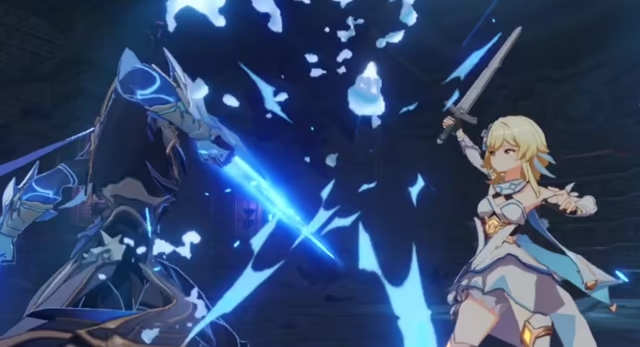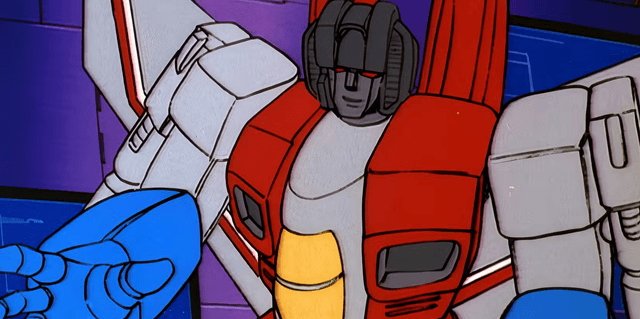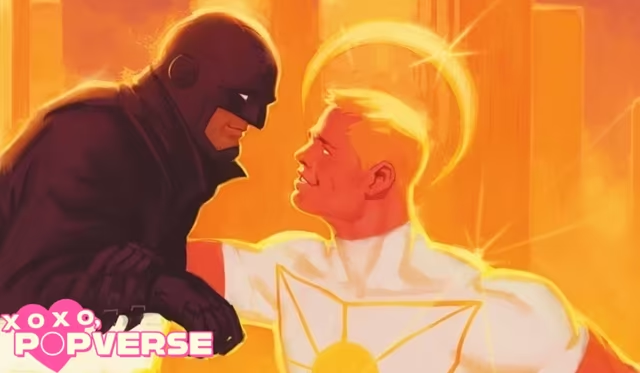If you click on a link and make a purchase we may receive a small commission. Read our editorial policy.
From The First Omen to Quiet Place: Day One to Apartment 7A, 2024 horror movies are all about the power of the prequel. But why?
What about this year's franchise horror movie fare has Hollywood winding the clocks back? Let's figure it out

Popverse's top stories
- Every Star Wars trilogy is really a bad romantasy story and you'll never convince me otherwise
- Midnighter and Apollo from DC Comics proved that fighting a tyrant together is incredibly romantic
- Members only: Ask Ming-Na Wen, Critical Role, Gail Simone, Karl Urban, Chris Claremont, Denys Cowan, and more your questions as part of ECCC x Popverse member exclusive!
Google '2024 horror movies' and you'll notice a trend. No, it's not that they sync up spookily well with the Book of Revelations (though they do), it's that some of the biggest franchise offerings from the genre are prequels. The First Omen, A Quiet Place: Day One, and Apartment 7A all tell tales of the gore that came before; hell, even Alien: Romulus is earlier in the timeline than most of its fellow flicks. So my question to you, oh minder of the macabre, is why?
Horror is always a reflection of a cultural moment, so what about this one has us nervously glancing into the metaphorical rear-view mirror? I have some ideas on the subject and, if you have a moment, I'd love to go through them all here, with you. So go ahead and check out, and maybe even comment on (nicely please), these possible explanations as to why 2024 is the year of the horror prequel.
Explanation A.) They're a way to avoid the sequel curse

Even the most devout fright fan will tell you that, out of every big Hollywood genre, horror has some of the worst sequels. You can think of some examples yourself - usually involving a trip to space - even though some franchise fodder that was originally panned by critics is having a new moment (looking at you, Friday the 13th: The Final Chapter). Still, studios are just as cognizant of the fact that horror franchises tend to trend downward the longer they go on, so let me pitch this idea to you: perhaps studios have realized that prequels are better a way to bring their IP back to the big screen.
Why? Well, I know not the minds of Hollywood's elite (I'd be much wealthier if I did), but I might guess that prequels are a way to return to when a franchise's horror was at its horror-iest. That is, at their beginnings. One of the mistakes horror sequels have made in the past is revealing too much about their monsters (*cough* Halloween *cough*), and as your friend and mine Trent Cannon so eloquently writes, "the less you show your monster, the better your movie will be."
Perhaps prequels are a way to return to the time when less was more.
Explanation B.) The doom comes free with purchase

On the other hand, maybe prequels are so appealing these days precisely because of what we already know about the monster. Writing about season 2, episode 5 of The Lord of the Rings: Rings of Power, IGN's Samantha Nelson recently quipped that "Sometimes, a prequel has the advantage of showing us the beauty of something we know is doomed." The horror genre isn't always concerned with what's beautiful, but the notion still stands - powerful emotion can come from seeing someone on screen and knowing a grim fate awaits them.
In the case of Rings of Power, that powerful emotion is tragedy. In a case like, say, The First Omen, it's dread.
Explanation C.) A deeper dive can be therapeutic

And while we're on the subject of emotion, I posit that another plausible reason for horror's present prequel penchant might not come from what's going on onscreen at all... but what's going on in the mind of a viewer.
There's a theory among pop psychology circles that the horror genre can be a kind of therapy; I've touched on the concept here at Popverse before. To make a large concept little, the idea goes that watching a scary movie can give viewers a safe way to deal with fear, confined to the four sides of a screen, that then helps them deal with the real horrors of the real world.
Perhaps today's prequel-itis is a modern evolution of the genre's mental health benefits. So many of the terrors we face come seemingly out of the blue; how many times have you heard or said the words 'How did we get here' in response to some awful thing happening in the world? Horror prequels provide the same safe space their predecessors but also dare to dig deeper into the reasons we're afraid, the same way a therapist might ask you to talk about a childhood trauma from the confines of their couch. As our factual fears become seemingly more complex every day, maybe our fictional ways of dealing with them have done the same.
Then again, maybe I'm overthinking the whole issue. If you've read my work here before, you know it's an endearing talent of mine. Maybe, at the end of the day, the reason horror franchises are churning out prequels is more straightforward than any of this. Maybe it's because prequels are scary.
After all, it's been a tumultuous decade that I'm sure we'd all rather leave in the past. Might the scariest thing in the recesses of all our minds simply be... going back?
In the immortal words of Danny Elfman, "Life's no fun without a good scare." Join Popverse's weekly explorations of the best opening moments of horror cinema in The Coldest Open, and then check out:
- The best horror movies of all time, according to horror aficionado Greg Silber
- The most underrated horror movies from the past couple years
- All the new and upcoming horror movies for 2025 and beyond
And much gore. Er, more. Much more.
Follow Popverse for upcoming event coverage and news
Find out how we conduct our review by reading our review policy
Let Popverse be your tour guide through the wilderness of pop culture
Sign in and let us help you find your new favorite thing.
















Comments
Want to join the discussion? Please activate your account first.
Visit Reedpop ID if you need to resend the confirmation email.